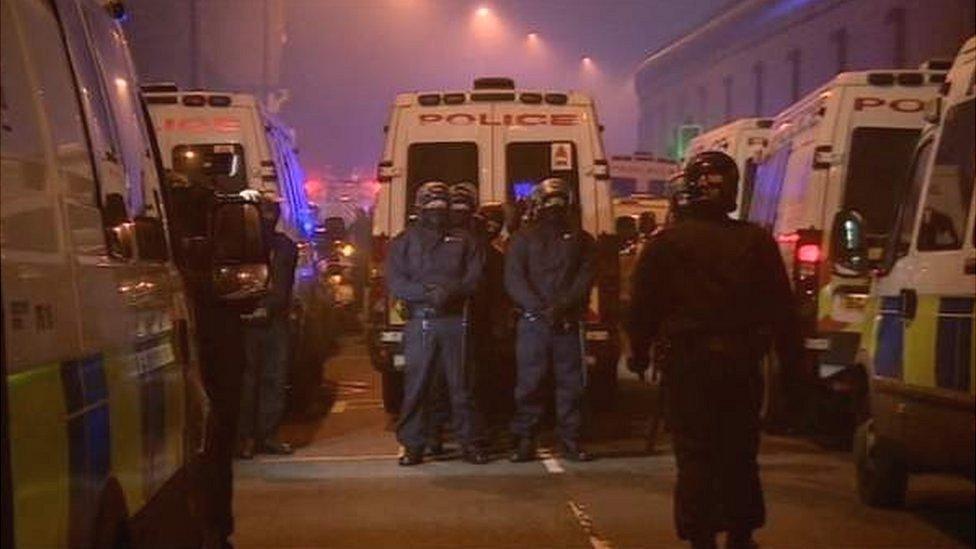US inmates nationwide strike to protest 'modern slavery'
- Published
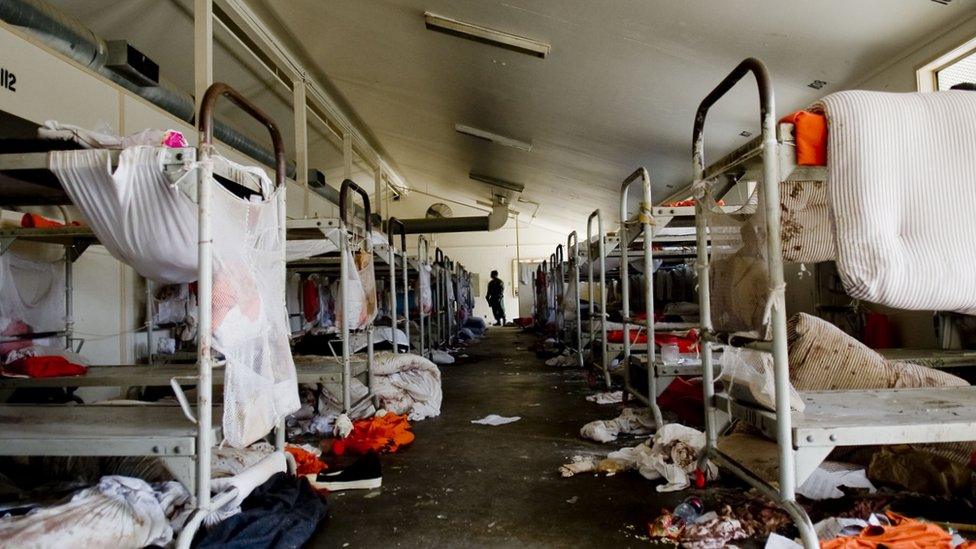
The aftermath of a 2009 prison riot in California
Incarcerated men and women in at least 17 states across the US have begun one of the country's largest prison strikes in history.
The two-week-long peaceful strike is meant to protest jail conditions, life without parole and other human rights concerns, the organisers say.
Jailhouse Lawyers Speak, an inmate group offering legal aid in jail, is responsible for initiating the strike.
Inmates could face punishments for shirking their duties in the protests.
From 21 August to 9 September, inmates nationwide will abandon their work duties - and some may even abandon food - to call attention to what they view as the exploitative conditions of American prisons.
Why are they protesting?
Organisers from Jailhouse Lawyers Speak (JLS) said in a statement that prisoners believe they are "being treated like animals".
"Prisons in America are a warzone. Every day prisoners are harmed due to conditions of confinement. For some of us it's as if we are already dead, so what do we have to lose?"
In addition to the statement, a press release, external contained a list of 10 national demands, including:
Improving prison conditions and policies so that they "recognise the humanity of imprisoned men and women"
Ending "prison slavery" and paying inmates proper wages
Revoking life sentences without possibility of parole, which the statement refers to as "death by incarceration"
An end to the "racial overcharging, over-sentencing and parole denials" of inmates of colour
More rehabilitation services
The strike comes as a response to the April riots at the Lee Correctional maximum security prison in South Carolina, according to the press release.
Hours of rioting on 15 April, sparked by gang-related issues, ended with seven prisoners dead and 22 injured, according to the Associated Press, external.
Tuesday's press release called the Lee riots "a senseless uprising".
"Seven comrades lost their lives during a senseless uprising that could have been avoided had the prison not been so overcrowded from the greed wrought by mass incarceration, and a lack of respect for human life that is embedded in our nation's penal ideology.
"These men and women are demanding humane living conditions, access to rehabilitation, sentencing reform and the end of modern day slavery."
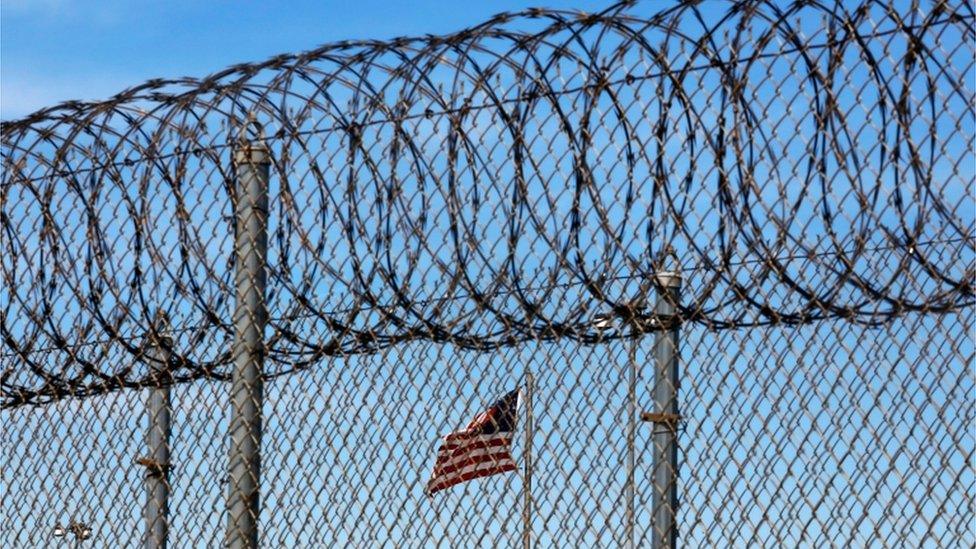
The US has the highest incarceration rate in the world - far above other comparable industrialised nations
What is the background?
Prison labour in particular has seen increased media attention in California recently, as inmates have been fighting wildfires across the state. These volunteer firefighters are paid just $1 (£0.78) an hour, US media report.
Across the US, prisoners work for similarly low wages - which many activists have called out as a practice akin to slavery.
The US constitution outlaws slavery, but not involuntary servitude as punishment for a crime.
"Prisoners are a uniquely vulnerable workforce," David Fathi, director of the American Civil Liberties Union (ACLU) National Prison Project, told the BBC.
"They are not protected by occupational health and safety laws that protect all other workers. If they're injured or killed on the job, in most states they're not protected by workers' compensation. So this creates a situation where the usual checks on employer exploitation and abuse simply don't operate."
Mr Fathi added that in the California situation, prisoners had been killed while on the job, highlighting how important it is to "ensure that those who are doing this work are doing it voluntarily".
"Given the power differential between prisoners and those who confine them, there is very little in prison that is truly voluntary," he says.
"And so it is particularly important to ensure that prisoners who choose to work are making a free and uncoerced choice, and that they're making a choice that is fully informed about the risks and dangers of the work they're agreeing to do. "
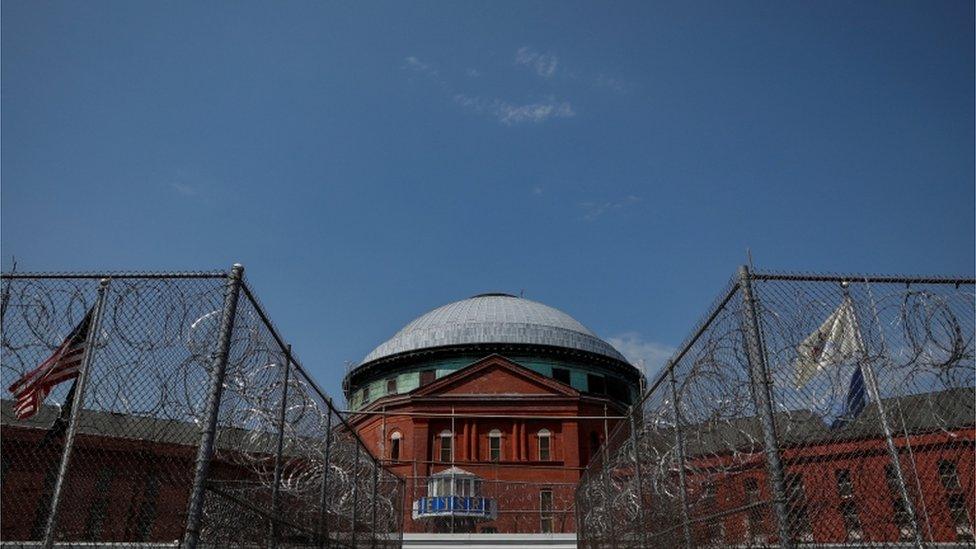
The inmate organisers have called US prisons a form of "modern-day slavery"
Both the beginning and end of the strike fall on important dates in US prison history.
On 21 August, 1971, 29-year-old George Jackson, an African American activist, was shot and killed by a guard after an escape attempt.
The end date of the strike marks the anniversary of the violent 1971 Attica Prison uprising, external that left 39 dead.
Surrounded by growing civil rights activism across America, Attica's inmates saw an opportunity to improve their own living conditions.
But after relations between prisoners and authorities grew tense, a riot erupted instead.
Twenty-nine prisoners and 10 hostages lost their lives.

America incarcerated
"The US criminal justice system is an extreme global outlier, with both the largest prison population and the highest per capita incarceration rate in the entire world," Mr Fathi, of the ACLU, told the BBC.
The nonpartisan nonprofit Prison Policy Initiative, external (PPI) reported that the US jails five times as many people as other industrialised nations, despite having comparable levels of crime.
"These conditions persist at least in part because the US, unlike other advanced democracies, has no independent oversight body for prison conditions," Mr Fathi says. He noted that there is no equivalent body to the UK's Inspectorate of Prisons in the US.
According to the National Research Council, external, that amounts to nearly one in every 100 US adults being in prison or jail.
PPI estimates 2.3m people went through the American prison system in 2018, and many of these individuals were not convicted criminals, but were too poor to make bail before their trials.
The US Bureau of Justice, external reports there were 2.2m inmates held in state or federal prisons or local jails in 2016.
Udi Ofer, director of the ACLU Campaign for Smart Justice, said in a statement that the "courageous people" taking on the peaceful protest "deserve our admiration".
"We urge corrections officials not to respond with retaliation. Peaceful demonstrations challenging unjust conditions and practices do not merit placing participants into solitary confinement or adding time to their sentences."
- Published9 November 2015
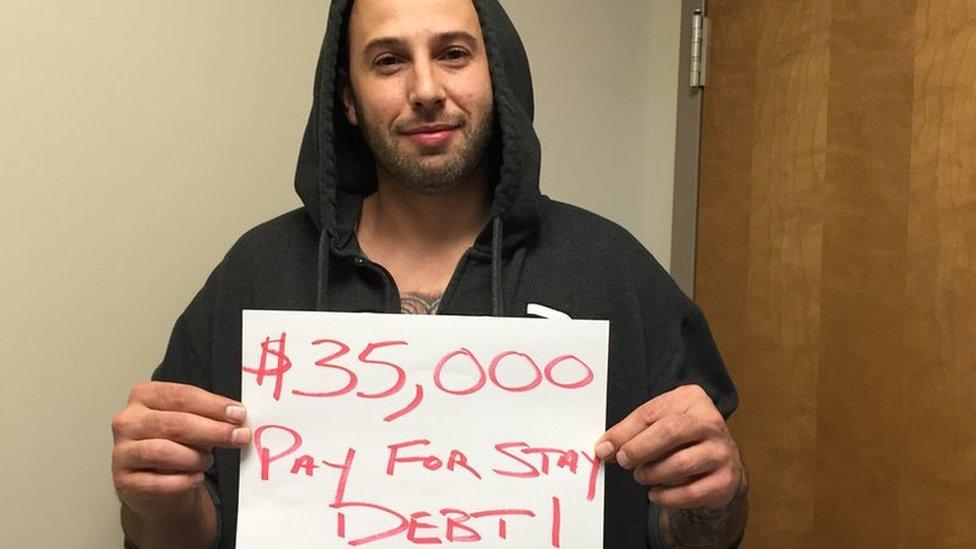
- Published30 March 2018
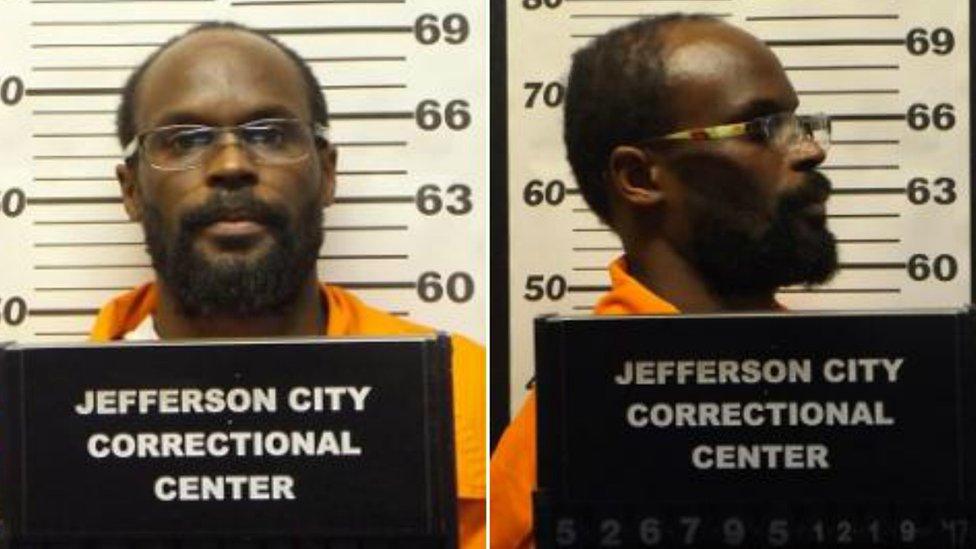
- Published20 August 2018
